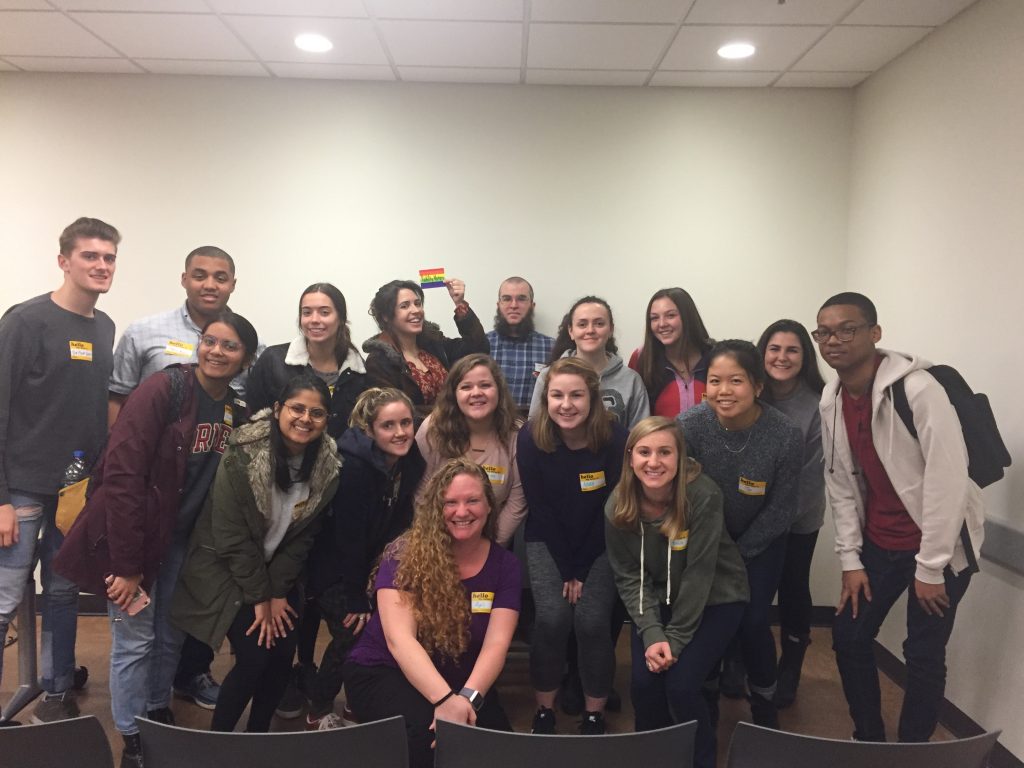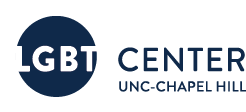Safe Zone Trainee Hub

Supporting LGBTIQA+ Campus Members
The LGBTQ Center offers an array of critical services available to support LGBTIQA+ students, faculty, and staff members. On this site, you will find information and resources to assist you in disrupting cisheterosexism and providing support to those who need it. We hope this will help you continue to deepen your understanding of LGBTIQA+ communities, increase your awareness of relevant campus services, and remain visible through your actions in allyship with LGBTIQA+ Tarheels.
The Safe Zone Allyship Network
You have joined a cohort of people dedicated to educating themselves and others about oppression, heterosexism, biphobia, transphobia, and homophobia; and to address these issues on a personal level. We encourage you to connect with your fellow trainees and utilize the resources below to deepen your knowledge and inform your allyship.
Safe Zone Signs
If you have chosen to receive a Safe Zone sign, it will serve as an indicator of your commitment and help to visibly disrupt cisheteronormativity. While this sign should not be the only way that your allyship is readily visible to other campus members, it is an important part of the Safe Zone trainee experience. If yours becomes lost or damaged, please request a replacement. If you need to update your sign due to a name change, please update your information.
Monthly Newsletter
Supplementary Materials
We have developed the following resources to help you dive deeper into training topics. These materials are continually updated so check here to ensure you have the most up-to-date versions.
Technical Consultation
LGBTQ Center staff are available to meet with you individually to provide technical consultation on best practices and research related to LGBTIQA+ topics. We can accommodate email, text message, video, and phone conversations.
Guidelines for Safe Zone Trainees
As a Safe Zone Trainee, we ask that you follow these allyship guidelines:
Respect each individual's privacy
We are asking you to keep your contacts confidential. When discussing allyship issues with other allied individuals, refrain from disclosing personal or identifying details of a student. Confidentiality means not disclosing identifying details about someone.
Consult the LGBTQ Center staff
Consult the LGBTQ Center staff whenever you have questions or would like feedback on how to support or advise a student.
Keep clear, professional boundaries.
You may find yourself being an advocate, advisor, teacher, or mentor to students who seek your support. While it is entirely appropriate for a staff or faculty member to have coffee or lunch with students, it is not appropriate to form romantic or sexual relationships with them.
Refer students for counseling when appropriate.
If a student is experiencing extreme psychological distress and is having difficulty coping, suggest that counseling may be helpful to them. Note: If you are feeling overwhelmed or worried about a student, referring them to Counseling and Psychological Services would be appropriate. You can also refer them to the staff at the LGBTQ Center.
Monitor Your Safe Zone Sign
Your Safe Zone sign is considered University property. If it is defaced or torn down, report the incident to the LGBTQ Center immediately and request a replacement sign.
Keep Us Updated
If you are leaving the University, changing offices or address, or want to withdraw from the program, please inform the program coordinators so that we can update your information.
Review Your Materials
Keep your resource manual and new materials that may be periodically sent to you in a location that is accessible and familiar to you. It is permissible to copy materials from the resource manual. If you have suggestions for material you would like to see added to the manuals that are distributed, please contact our Assistant Director.
